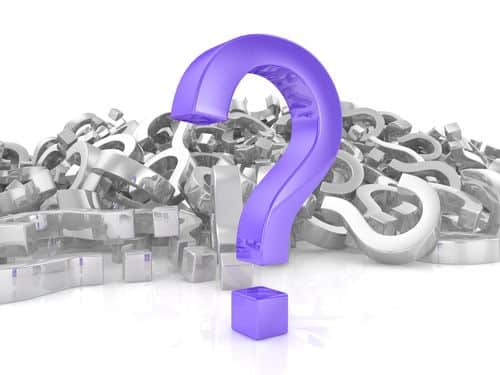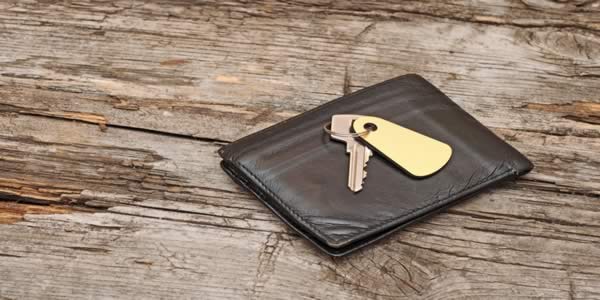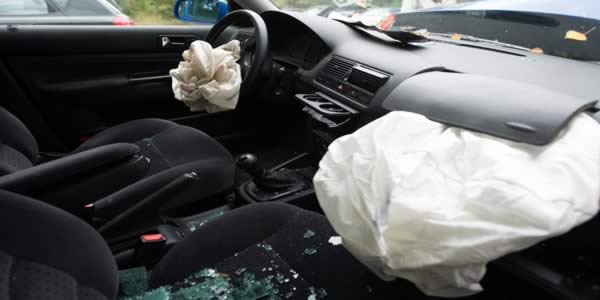I’ve been a lawyer in Charleston, South Carolina for 20 years and I’ve been asked THOUSANDS of legal questions. Family law, personal injury, criminal defense, DUI, employment law, business law – you name it, and someone has asked it. Of course, there’s also the most important question asked most often by any client – “What are my chances of winning or losing?”
No matter what the legal question might be, here is the BEST ANSWER TO EVERY LEGAL QUESTION. Ready? Here it is:
“IT DEPENDS.”
Disappointed? Please don’t be; this is NOT a trick answer or a joke. It truly is the BEST answer that any lawyer can ever give to any client. It’s also the most important thing about any case a client needs to understand. Please read on, and I’ll explain why:
When I was a law professor, I’d ask my students questions about different legal problems. Their answers (much like young lawyers’ answers to their clients) were always the same – “statute blah blah blah says X, Y, and Z” or “in the case of so and so, the court said A, B, and C.” Technically, their answers may have been correct, but they missed the point. The best answer to any legal question depends on many more things besides statutes or case-law. The answer to any legal question, and more importantly the question of whether you win or lose, always depends on a combination of the following 5 things: The judge, the jurors, the facts, the client, and the lawyer.
There is Nothing “Absolute” About the Law
Very rarely is the law black or white; it works in shades of gray. Take, for example, family law. In family court, many things depend on “factors.” Alimony depends on “factors” such as the spouses’ ages, their health, their assets and debts, whether they caused the breakup of the marriage, and many more factors. Custody depends on “factors” such as has who’s been the primary caretaker for the children, the financial resources of each one of the parties, and whatever the court considers to be in the children’s best interests. On top of factors, family court judges are given a lot of “discretion” in their decision-making. Between “factors” and “discretion,” if we took the same case and put it in front of 10 different family court judges, we’d get 10 different outcomes. Many of the outcomes may meet “in the middle,” but some of the outcomes will be at one extreme or another. This example, brings us back to the best answer to any legal question, including the outcome of any case. It depends on the judge, the jury, the facts, the client, and the lawyer:
1) The Judge – Despite what statutes or higher courts may have to say about the law, judges interpret the law as they see fit. Because judges are human, sometimes they’re mistaken about the law. That’s why we have higher courts (appellate courts), to correct any mistakes (hopefully) made by the lower courts. On top of that, judges have their own personal views about the cases they hear, the parties and witnesses involved, and so on. Some judges do very little to hide the fact that they don’t like certain types of cases such as car accidents. Some judges are known for being very strict when it comes to sentencing anyone convicted of a crime. So, as you can see, the answers to any legal question, and in particular the outcome of a case, depends on who the judge might be.
2) The Jurors – Not all cases involve jurors. For example, in South Carolina, Family Court cases are only heard by a judge. But many other types of cases, such as automobile accidents or criminal cases, are decided by jurors. Every juror is unique Some are rich and some are poor. Some are liberal and some are conservative. The list of differences goes on. In the end, you wind up with a mix of jurors from all walks of life who bring their own personal views into the court room. This too should come as no big surprise – many jurors don’t care for plaintiffs lawyers or their clients. From the minute a plaintiff walks into the courtroom with their lawyer, it is an uphill challenge for both the lawyer and the client to convince the jurors of their sincerity and the righteousness of the plaintiff’s claim. Although the jurors don’t decide the law (that’s the judge’s job) they do decide whether you win or lose.
There is another thing that you should know about jurors. No matter how well-crafted the presentation of your case may be, they’re all going to hear and see your case differently. I’ll give you a real world example of how this happens all the time – Hollywood movies. In bringing a movie to the theaters, incredible amounts of time, effort, and money are put into creating a single production. Despite all these efforts, not everybody sees the film the same way In this example, Some audience members liked it and some didn’t. Some laughed at parts that weren’t funny and others didn’t laugh at all at the punch lines. Some missed parts of the movie, by fiddling around with their popcorn or talking to the person next to them. In other words, although the audience all saw and heard the same movie, they all had a different view of it. The same is true for a number of jurors sitting in a box together and listening to the lawyers and their clients present their case. So, as you can see, the answer to the question of whether you win or lose your case depends on who your jurors might be on any given day.
3) The Facts – To prove your case, you must establish the facts. Facts can be documents, witnesses, physical evidence, and all sorts of things. Some of the facts are established by “direct evidence” and some by “circumstantial evidence.” Let’s say at trial you are trying to prove to the jurors that it was raining outside. If you took the jurors outside and into the rain, that’s “direct evidence” of the fact that its raining. If, instead, you pointed out to the jurors that everyone walking into the courtroom was carrying an umbrella and was dripping wet, that’s “circumstantial evidence” that its raining. Unfortunately, many cases are based on circumstantial evidence which makes it more difficult to “connect the dots” before a judge or jury. Plus, if you’re proving your facts by other witnesses’ testimony, not everyone says the same thing, some don’t have a good recollection of events, and some will contradict the testimony of other witnesses. So, when it comes to the important question of whether you win or lose, the answer depends on the facts of the case.
4) The Client – Every client is unique. Some clients are capable of doing a great job of testifying before a judge and jury. Some clients are nervous when they speak in public and need a lot of work to be able to share their story. Some clients are more sympathetic than others. Some clients are well-prepared and well-organized and very helpful to their lawyer. Some clients are not so helpful. The list of differences goes on and on But the point is, the answers to your questions and the outcome of your case, depends on you the client.
5) The Lawyer – The answers you get to your legal questions and the outcome of your case also depends on who you choose as your lawyer. Just like judges do, lawyers differ in their views and their interpretations of the law. So, it’s not surprising that when some clients speak to more than one lawyer about their situation and they get different answers. Some lawyers tell their clients what they want to hear to make the client feel better. These lawyers are necessarily trying to be sneaky or dishonest; they do it out of compassion for the client. But at the end of the day, clients need to hear real, truthful answers from their lawyer and not just the things that are going to make them feel better about their case. As a client, you need to know the positives and negatives about your case so you can make the best informed decision about how to move forward such as whether to settle your claim or to take your case to trial.
Some lawyers have an excellent understanding of the law, but they’re not familiar with judges or juries. Some lawyers are very prepared for court and some lawyers fly by the seat of their pants (there’s no substitute for preparation). Some lawyers, despite all their efforts, just can’t seem to connect with judges or jurors. Good trial lawyers must be good storytellers. They must present your case to a judge any jury, including the facts and the law, in a way that is understandable, compelling, sincere, and convincing. Just like a great, best-selling novel can be ruined by the movie director who brings the book’s adaption to the big screen, the wrong lawyer can take the best set of facts and favorable law, and turn it into a jumbled mess before a judge or jury. So, the answers to your legal questions, including whether you win or lose, depends on who you choose as your lawyer.
Final Thoughts
As much as lawyers would love to give their clients a definite answer to all of their questions, the truthful and BEST answer is – “it depends.” When a lawyer tells you this, that means that the lawyer is considering ALL of the circumstances and not just what is written in a statute or a text-book on case-law. That’s a good thing because, in the end, whatever the answers to your questions might be, it’s the results that count.
Charleston Lawyers for Personal Injury, Family Law, DUI, and Criminal Defense
Need an attorney in Charleston?
Call Futeral & Nelson, LLC today for a consultation. 843-284-5500.












